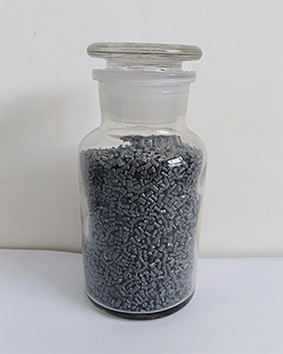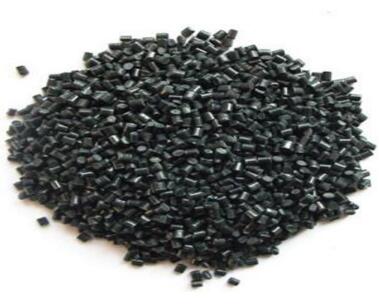Low-value recycled plastics refer to those lower-value plastic wastes generated during the plastics recycling and reclamation process, usually because their quality, composition or contamination levels do not meet the standards for high-value recycled plastics. However, the utilization of low-value recycled plastics still has important implications, including environmental protection, resource conservation, and sustainable development. The following will discuss the significance in detail and provide some suggestions to improve the utilization of low-value recycled plastics.
I. Significance
1. Environmental protection: The reuse of low-value recycled plastics can reduce the dependence on natural resources and the negative impact on the environment. By converting these plastic wastes into new products, it can reduce the demand for virgin plastics and reduce greenhouse gas emissions and energy consumption from oil extraction and plastic production.
2. Resource conservation: The reuse of low-value recycled plastics can achieve effective recycling of resources. Plastic waste usually contains valuable raw materials, such as polyethylene, polypropylene, etc. Through proper treatment and reprocessing, these materials can be put back into production, reducing the demand for raw materials, achieving resource savings and extending service life.
3、Economic benefits: The use of low-value recycled plastics can promote the development of recycling and reclamation industries, create employment opportunities, and drive economic growth. At the same time, the process of plastic recycling and reclamation can also provide enterprises with more supply chain options and reduce production costs.
Second, methods to improve the utilization of low-value recycled plastics
1. Technology improvement: Invest in and develop new technologies and processes to improve the quality and performance of low-value recycled plastics. For example, developing efficient sorting, washing and classification systems can improve the quality of waste plastics and make them more suitable for reuse.
2. Education and Publicity: Strengthen public awareness and consciousness of the use of low-value recycled plastics and promote the behavior of recycling and reclamation. Through education and publicity activities, we can convey the importance of recycled plastics to consumers and encourage them to purchase recycled plastic products to increase market demand.
3. Policy support: Develop and implement policies and regulations that encourage the use of recycled plastics. The government can provide economic incentives, such as tax breaks, supplements and financial support to encourage companies to invest in the research, development and production of low-value recycled plastics. The government can also set up recycling networks and infrastructure to provide convenient recycling channels to promote the recycling and reuse of waste plastics.
4. Circular economy model: Adopt the concept of circular economy and establish a whole industry chain management system for plastic waste. This includes considering the regeneration and recycling performance of products starting from the design stage of plastic products, promoting the use of sustainable materials and the optimization of production processes.
5. Cooperation and collaboration: Establish a cooperation mechanism between government, enterprises and social organizations to jointly promote the use of low-value recycled plastics. Through cooperation, experiences and best practices can be shared, resource integration and information sharing can be enhanced, and the utilization rate of recycled plastics can be improved.
6. Consumer education: Strengthen education and training for consumers to improve their knowledge and skills in plastic waste recycling and reuse. Consumers can choose recycled plastic products when purchasing and using plastic products, as well as learn the correct methods of sorting and recycling disposal.
7. Innovation and design: Encourage innovation and design to develop more environmentally friendly and sustainable plastic alternative materials and reduce reliance on plastic. At the same time, advocate the design of products that take into account the use and recycling properties of recycled materials to promote the realization of a circular economy.
In summary, the keys to improving the utilization of low-value recycled plastics lie in technology improvement, education and awareness, policy support, circular economy, cooperation and collaboration, consumer education, and innovation and design. Through the integrated application of these measures, the effective utilization of low-value recycled plastics can be promoted to realize the recycling of resources and sustainable development.
About Henan Pingyuan New Material Technology Co.
Established in 2017, Henan Pingyuan New Material Technology Co., Ltd. has an advanced remanufacturing enterprise integrating the research and development, recycling, production and sales of recycled plastics with its factory located in the Economic Development Zone of Fugou County, Henan Province. The company is the world's leading recycled plastic recycling solution provider, with sales centers and warehouse bases in Ningbo City, Zhejiang Province and Dongguan City, Guangdong Province, respectively. We provide recycled plastic recycling solutions for global customers, serving more than 50 foreign trade enterprises and more than 800 factory enterprises in 15 countries and regions. The company has disposed and utilized more than 100,000 tons of various recycled plastics in total.
In September 2020, President Xi Jinping solemnly announced China's ambitious strategic goal of achieving carbon peak by 2030 and carbon neutrality by 2060 at the general debate of the 75th session of the United Nations General Assembly.
The company has long been committed to solving the increasingly serious environmental problems of mankind, deeply exploring the potential value of recycled plastics and promoting the continuous improvement of human living environment. In recent years, the company has taken the lead in carrying out ESG practices in the field of recycled plastics, actively promoting a green and low-carbon production and lifestyle, and continuously creating greater value.
The company is a national high-tech enterprise, a specialized and special new enterprise in Henan Province, and an engineering technology research center for recycled plastic recycling in Zhoukou City, Henan Province;
The company has passed the GRS Global Recycling Standard certification (the first domestic recycled plastic utilization company to obtain this certification);
American UL OBP 2809 tend to sea plastic certification (the sixth company in the world to obtain this certification for recycled plastic utilization);
ISO9001 quality system, 14001 environmental system and 45001 occupational health and safety management system certification; the company has obtained the U.S. Food and Drug Administration FDA test report, the German "New Food and Dietetic Products Act" LFGB test report, the French International Bureau of Inspection BV test report and other international third-party test reports.
The company has built the only set of high standard pilot laboratory in the domestic recycled plastics industry, and has a professional R&D team, and has deep cooperation with research institutes and universities such as Institute of Process Engineering of Chinese Academy of Sciences, Institute of Chemistry of Chinese Academy of Sciences, Dalian Institute of Chemistry and Physics of Chinese Academy of Sciences, Zhengzhou University, Henan University of Technology and Dalian University of Technology.
Li Wangliang, the chief scientist of the company, is a special guest researcher of Henan Provincial People's Government, a doctoral supervisor, selected as one hundred people plan of Chinese Academy of Sciences, currently a researcher of Institute of Process Engineering of Chinese Academy of Sciences, deputy director of Green Chemical Research Department, high-level innovative talents of Jiangsu Province, leading talents of science and technology of Jiangxi Province, and an expert member of Catalysis Committee of Inorganic Salt Association of China Chemical Industry Association, the ninth session of Hebei Chemical Industry Society, the honorary chairman of the Institute of Process Engineering of Chinese Academy of Sciences, and the chairman of the Institute of Petroleum University (Beijing). Honorary President of the Hebei Chemical Society, Visiting Professor of Petroleum University (Beijing), etc.
From 2010 to 2017, he conducted postdoctoral research at Nanyang Technological University and National University of Singapore. He has conducted research in the fields of solid waste energy and high value utilization, nanofiber membrane separation, etc. His research results have won the second prize of technical invention of the Petrochemical Association, and he has presided over and participated in many national projects, published more than 100 papers in recent years in,, and other international journals, and applied for more than 40 invention patents, of which more than 20 have been granted Chinese invention patents. He has made outstanding contributions to Chinese scientific research.
The main test and inspection instruments are: falling ball drop tester, digital display cantilever beam impact tester (ISO standard and ASTM American standard), spectroscopic light box, spectroscopic colorimeter, temperature and humidity meter, melt flow rate meter, high precision electronic balance scale, direct reading electronic density meter, rubber hardness meter, servo type universal material testing machine, touch screen material horizontal and vertical combustion tester, twin-screw high-mixing plasticizing pilot line.
Our main recycled plastic products, such as RABS, RPP, RPET, RPA6, RPA66, RRE, RPP, RTPR, RPC, RPVC, REVA, RAS, RTPU, RTPE, RPS and other materials, are mainly used in daily necessities, daily chemicals, clothing, shoes and hats, electronic and electrical, automotive, petrochemical and other industries. Our main customers are international brands or world top 500 companies such as LG Chemical, Hyosung, Kumho, BASF, Lego, Decathlon, Chanel, Estee Lauder, etc. in South Korea.
After more than ten years of forward-looking layout, the company has formed the upgrade of the whole industrial chain from waste plastic recycling to the application of high-value recycled products. Adhering to the development idea of standardization, grouping and industrialization, the company focuses on building independent intellectual property rights and recycling brands, and drives the upgrading of the whole industry through technology output and brand output, etc. It makes every effort to build a green, low-carbon and technology-empowered recycling economy industrial system for sustainable development, carries out in-depth ESG practices, fulfills social responsibility with high standards, and becomes a model of green and low-carbon development. enterprises.
In the next forty years, the recycled plastics industry will lead to a strong development of blowout, and will form a trillion-dollar recycled plastics market demand. The company actively joins hands with upstream and downstream enterprises in the industry chain, third-party institutions, public welfare organizations and the government to seize the "double carbon" policy opportunity and market opportunity, based on the new development stage, complete, accurate and comprehensive implementation of the new development concept, build a new development pattern, with the goal of improving the utilization rate of recycled environmental protection materials, improving resource utilization efficiency, extending the The company aims to improve the utilization rate of recycled materials, improve the efficiency of resource utilization, extend the recycling industry chain, promote the construction of ecological civilization, and help achieve the global "double carbon" strategic goal.
Professional production--global recycling standard GRS certification






 Current location:
Current location:





